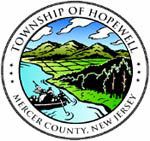By Frank Mustac, Contributor
The two owners of properties collectively known as the Kooltronic site are suing Hopewell Township for damages related to the development of the combined 100 acres along Pennington-Hopewell Road.
The two plaintiffs in the lawsuit are the companies Pennwell Holdings LLC and The Gadbey Organization.
Pennwell is listed as owning two non-contiguous parcels — one roughly 50 acres in size, the other about 29 acres — identified together as block 37, lot 17.011 on the township tax map.
Gadbey owns about 21 acres identified as block 37, lot 17.03.
Steven Goodell, attorney for Hopewell Township, said on Tuesday that he does not know the nature of the relationship between the Kooltronic company, Pennwell or Gadbey.
There are three counts in the lawsuit, notice of which was formally served to the Hopewell Township in the first week of September, according to the township attorney.
The first count, Mr. Goodell said, seeks to “overturn” an interpretation of part of the township’s land use and development ordinance that the township’s zoning board rendered on May 19 and memorialized on July 6.
The two companies requested the zoning board provide an interpretation regarding “non-contiguous cluster development” provisions in the ordinance back in January.
“The Kooltronic site is in a zoning district that allows for increased density if land is preserved in another part of the town,” Mr. Goodell said. “The question they posed to the zoning board dealt with the specifics of what land qualified for preservation in order to give extra density to their property.”
Essentially the township’s land use ordinance allows the site owners to obtain “development potential” from other land owners to increase housing density on the Kooltronics site. In exchange, the owners of land from which the development rights have been obtained have to conserve their land in perpetuity by way of a deed restriction.
In its interpretation of the township’s land use ordinance, the zoning board placed limitations on the types of land that qualify for transfer of development potential.
For example, the zoning board ruled that conservation of environmentally constrained land features, such as wetlands, floodplains and wooded areas, would not qualify for the transfers.
The second count in the lawsuit, according to the township attorney, “seeks a declaratory judgment that would in effect confirm Pennwell’s own interpretation of the zoning ordinance.”
“(The third count) is against the township alleging that the plaintiffs have suffered damages as a result of a delay in developing their property,” Mr. Goodell said.
In 2013, a joint project between Hopewell Township and Kooltronic was being considered for a proposed mix-use village that would have been built on 25 acres of township-owned land — the site of the razed Pennytown Shopping Village — and 76 acres owned by Kooltronic, located across Route 654 from Pennytown.
The mixed-use village plan fell through, but if it had been completed as proposed, 350 housing units would have been built, including 70 units for low- and moderate-income residents, as well as several stores and a community center.
Owners of the Kooltronic site have the potential to build about 250 units, under township zoning rules.
Mr. Goodell said that he and the zoning board’s attorney, Kevin Van Hise, would be handling the lawsuit for Hopewell Township. The case will come before Mercer County Superior Court Judge Mary Jacobson.

